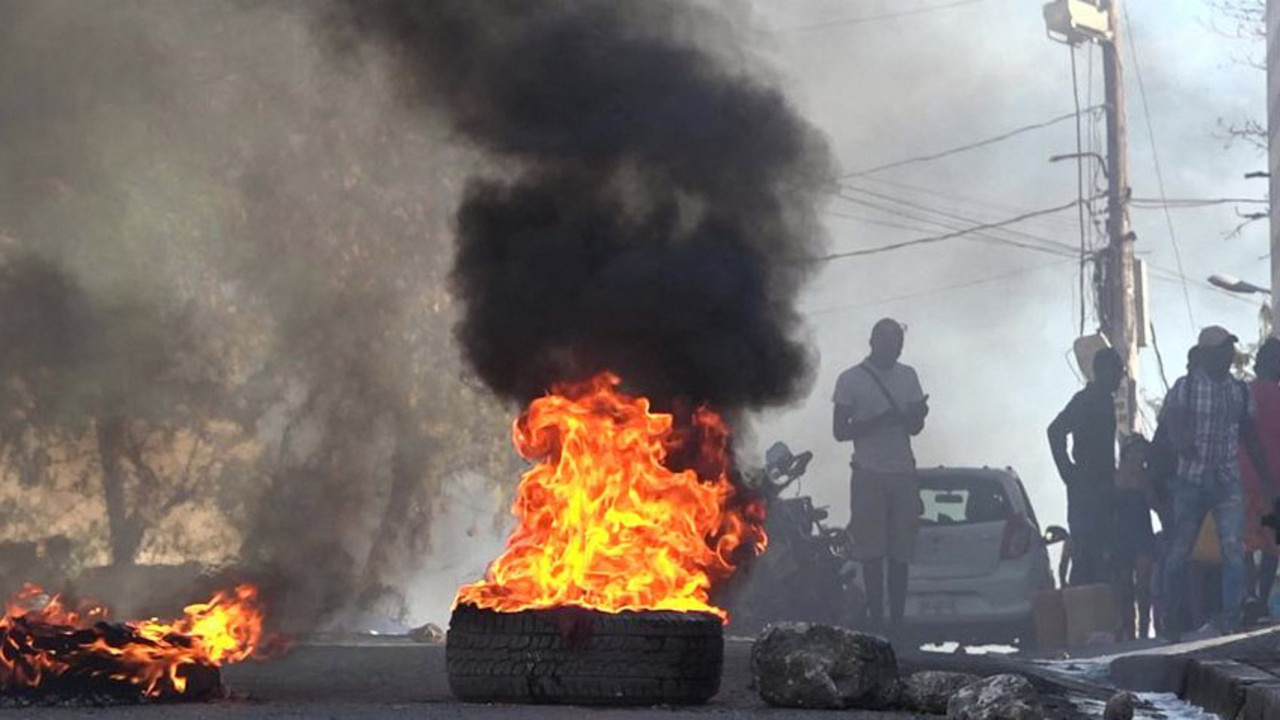[ad_1] Haiti’s capital was largely shut down on Monday with residents only venturing out for essentials, AFP reporters witnessed, as authorities imp
[ad_1]
Haiti’s capital was largely shut down on Monday with residents only venturing out for essentials, AFP reporters witnessed, as authorities imposed a state of emergency after an attack on a prison freed thousands of inmates.
The prison break came in a new spate of extreme violence sweeping through Port-au-Prince, where armed gangs who control much of the city have wreaked havoc since last week.
The day after the state of emergency and a night-time curfew were declared, an AFP reporter said some locals were on the street looking to buy water and fuel.
Schools and banks were closed, and people sheltered for safety in schools, sports venues, gyms and public buildings, often without adequate toilets, health facilities or drinking water.
“This morning the city is paralysed,” Carlotta Pianigiani, a co-ordinator in Port-au-Prince for the Alima medical NGO, told AFP.
“Public transport is practically at a standstill, private vehicles are rare and schools are closed. Some roads are also barricaded.”
She said 15,000 people were displaced in weeks of recent unrest and that the largest public hospital suspended operation last week, adding that the situation was “already very tense”.
The gangs say they want to oust Prime Minister Ariel Henry, who has led the crisis-wracked Caribbean nation since the assassination of President Jovenel Moise in 2021.
About a dozen people died in the violence at the National Penitentiary in the capital on Saturday night, according to AFP reporters, with only a few of the estimated 3800 inmates still inside.
UN Secretary-General Antonio Guterres expressed alarm at the “rapidly deteriorating security situation” and underlined the need for more funding for the planned multinational police mission to be led by Kenya.
The White House also said it was monitoring the growing crisis.
“We’re monitoring Haiti’s rapidly deteriorating security situation with great concern,” US National Security Council spokesman John Kirby told reporters in a call.
Late on Sunday, the Haitian government vowed its security forces would take whatever measures were needed to take back control.
But Haitian authorities are notoriously weak — kidnapping and other violent crime is rampant, and gangs are often better armed than the police.
Gang leaders and suspects charged in the assassination of President Moise were among those in the prison, located close to the National Palace, the Haitian news outlet Le Nouvelliste said.
It reported the prison had been under surveillance by the attackers using drones.
Powerful gang leader Jimmy Cherisier, known by the nickname Barbecue, said in a video on social media that the armed groups were acting in concert “to get Prime Minister Ariel Henry to step down”.
It was not immediately clear if Mr Henry had returned to Haiti after a trip to Kenya.
The UN Security Council in October approved an international police support mission to Haiti that Nairobi had agreed to lead, but a Kenyan court ruling has thrown its future into doubt.
On Friday, Mr Henry signed an accord in Nairobi with Kenyan President William Ruto on deploying the force.
Haiti, the Western Hemisphere’s poorest nation, has been in turmoil for years, and the 2021 presidential assassination plunged the country further into chaos.
No elections have taken place since 2016 and the presidency remains vacant.
[ad_2]
Source link



COMMENTS